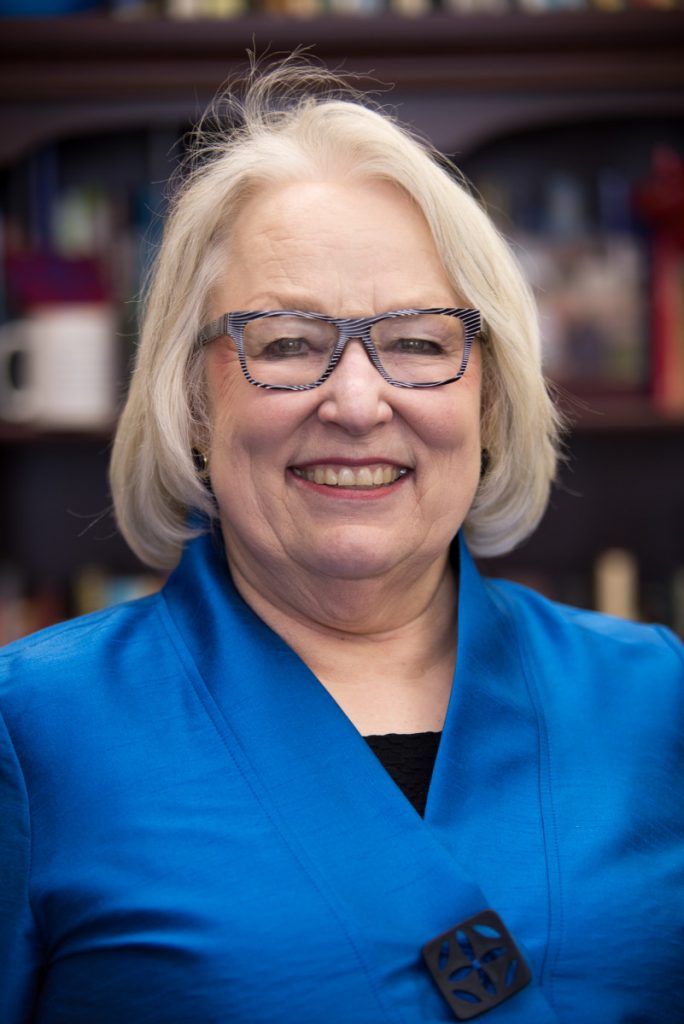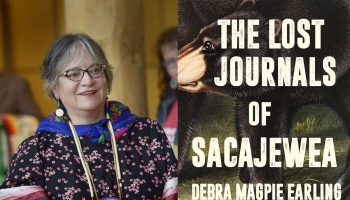
Chautauqua’s 150th anniversary celebration continues this week with the third in a series of five lectures centering on the history of the Institution’s program pillars: religion, recreation, education and the arts. This week’s Pillar Talk focuses on Chautauqua’s education pillar, led by former Vice President and Emily and Richard Smucker Chair for Education Sherra Babcock, who will speak at 3:15 p.m. today in Smith Wilkes Hall.
Babcock served first as director of education in 2007, before retiring in 2017 with a title much more reflective of the scope of her responsibilities. When she joined staff, she shared her vision with Chautauqua’s future in an interview with the Daily.
“If a place, a thing or a person doesn’t get better, doesn’t learn more, then it’s not growing, and I hope to be part of that kind of growth,” Babcock said in 2007.
One of Babock’s first tasks set forth by then-President Thomas Becker, was to better unite the Institution’s numerous literary arts programs; some were housed internally, others programmed by the community, still others by a little bit of both.
Throughout her tenure, Babcock took the many different elements — the Chautauqua Literary and Scientific Circle, the Chautauqua literary journal, the Smith Memorial Library, the Alumni Association of the CLSC, the CLSC Young Readers program, the CLSC Veranda, the Chautauqua Writers’ Festival and the Chautauqua Writers’ Center, among others — and brought them all in closer alignment, setting the stage for those who came after her to program the Chautauqua Literary Arts.
A key accomplishment during Babcock’s tenure was the establishment, with longtime Chautauquan and literary arts supporter Michael I. Rudell, of The Chautauqua Prize, which was created in 2011 and first awarded in 2012. The Prize is meant to honor a book that is both a good read and a contribution to literature, and the winning author receives $7,500, a weeklong residency on the grounds and a physical prize specifically designed to honor their book.
The year Babcock retired, President Michael E. Hill told Ryan Pait of The Chautauquan Daily that establishing the Prize was one of Babcock’s major accomplishments.
“There are lots of things she’ll be known for, but as we’re writing Chautauqua’s history, I think she can hang her hat on being one of the most important figures in elevating the literary arts here,” Hill told Pait.
The inaugural year for The Chautauqua Prize drew 65 entries from 36 publishers, with author Andrew Krivák winning for his novel The Sojourn. By 2017, the year of her retirement, the Prize drew nearly triple the number of entries, with 192 books submitted for consideration. Author Peter Ho Davies won for his novel The Fortunes. In 2024, the Prize continues stronger than ever, and this year is awarded to The Reformatory, by Tananarive Due, chosen from more than 300 submissions.
To discuss Babcock’s work with the literary arts, it may seem that that would have been enough for one person’s portfolio. But Babcock’s 10 years at Chautauqua saw her lead the department also responsible for the Oliver Archives Center, Youth and Family Programs, and Special Studies.
And that’s not even taking into account her overseeing Chautauqua Institution’s signature platform: the Chautauqua Lecture Series, at 10:45 a.m., five days a week, for nine weeks, each week centered around a specific theme of discussion.
During her tenure, she helped create new partnerships with National Geographic Society and Jazz at Lincoln Center, and fostered relationships with luminaries such as Nancy Gibbs, documentarian Ken Burns and authors Margaret Atwood, Billy Collins, Anthony Doerr, Jon Krakauer, David McCullough and Ann Patchett.
In 2017, when he was the Institution’s director of communications and editor of the Daily, Jordan Steves told Pait that Babcock had been an essential part of solidifying the planning process for lecture programming and ensuring it honors various points of view. Steves joined the Institution staff in 2009 and spent almost eight years working with Babcock in various capacities, including planning the morning lecture platform.
“It’s a process in which input comes from all over the place — community members, staff members, up and down the hallways of the Colonnade, all around the grounds, from speakers — she’s done such a great job of building relationships with people that Chautauqua should know and people who should know Chautauqua,” Steves told Pait in 2017, and added that the platform was “primed to really take off due to Babcock’s diligence.”
Steves would know; now, in 2024, it is he who holds the Emily and Richard Smucker Chair for Education, helping sculpt the Chautauqua Lecture Series, as Babcock once did, in partnership with Hill and now-Chief Program Officer Deborah Sunya Moore.
“It is Chautauqua’s signature program, and it should be something that all of the country knows about and tunes into when something happens on that stage,” Steves told Pait. “We’re just about there, and I think a lot of that is because of her.”




